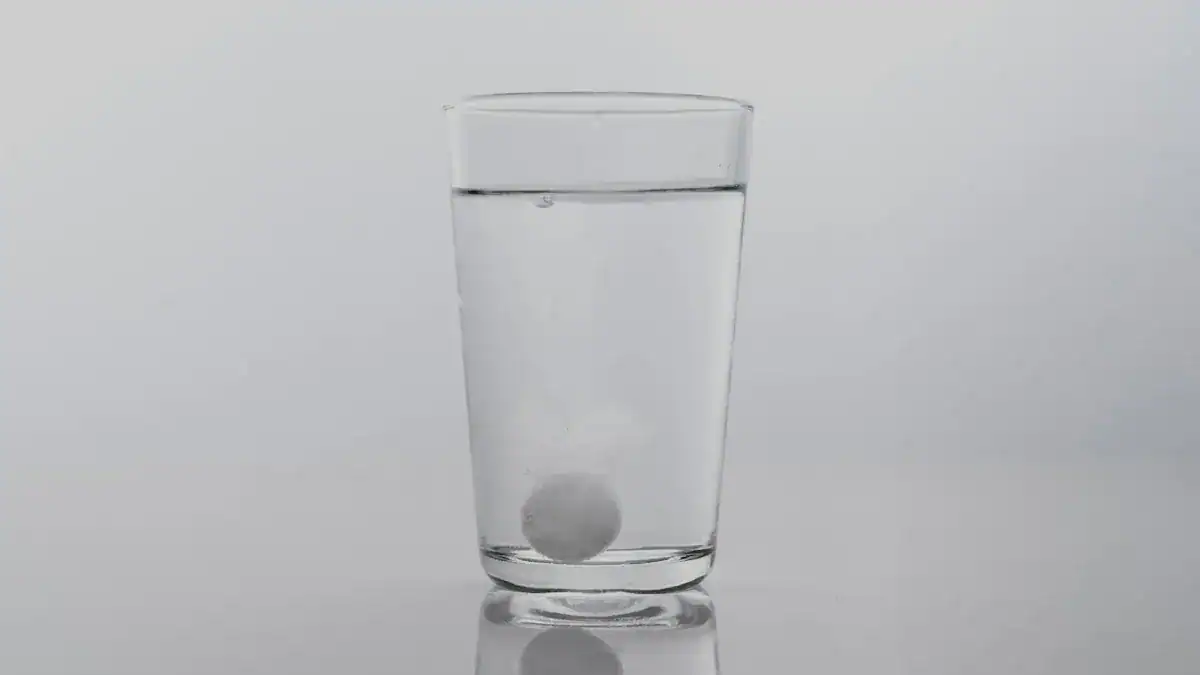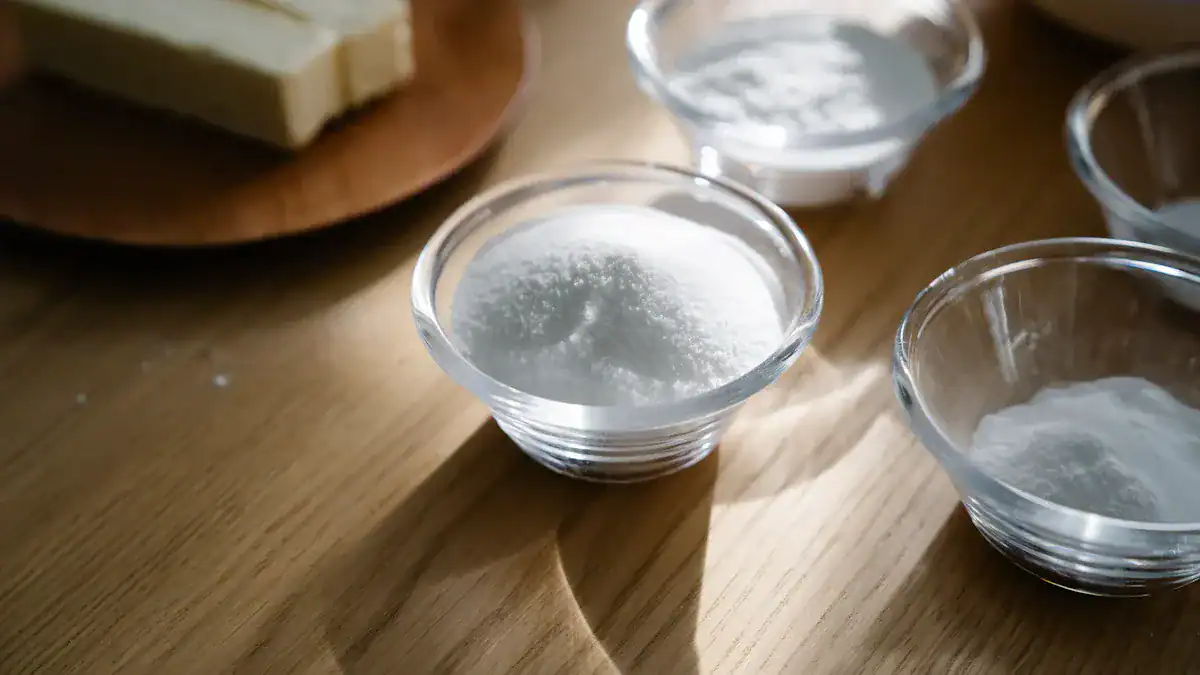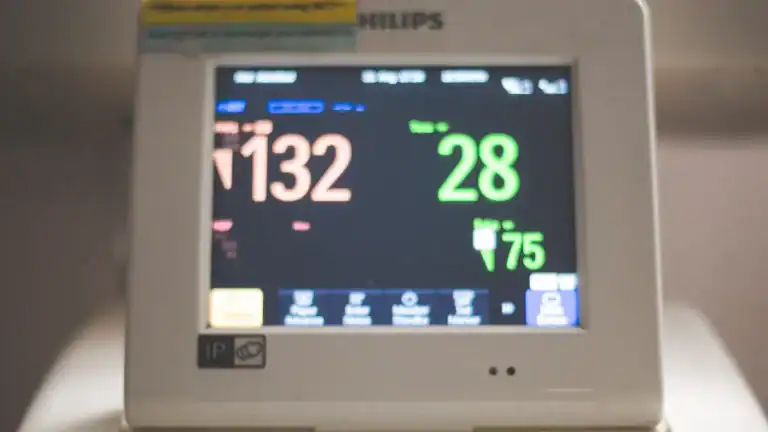
Is drinking baking soda safe and effective for your health? Many people use baking soda for various home remedies. While baking soda has some traditional uses, drinking baking soda water carries significant risks. You might hear about potential health benefits. However, serious risks exist with consuming baking soda. Always seek professional medical advice. Understand the dangers before using baking soda for health.
Key Takeaways
Baking soda can help with indigestion and heartburn. It neutralizes stomach acid. Some athletes use it to improve performance.
Drinking baking soda has serious risks. It can cause high sodium levels. This leads to problems like metabolic alkalosis and stomach issues.
Certain people should not drink baking soda. This includes those with heart problems, pregnant women, and people on low-sodium diets.
If you use baking soda, dilute it properly. Mix 1/4 to 1/2 teaspoon in water. Do not use it often. Stop if you feel bad and see a doctor.
Safer options exist for health concerns. Use other remedies for digestion. Choose proven supplements for exercise. Follow doctor’s advice for kidney health.
What is Baking Soda?

Sodium Bicarbonate Explained
You might know baking soda as a common kitchen staple. Chemically, baking soda is sodium bicarbonate. Its chemical formula is NaHCO₃. This means it contains four types of atoms. You will find sodium (Na), hydrogen (H), carbon (C), and oxygen (O) in every molecule. This unique combination gives baking soda its special properties. It is a white, crystalline powder. People use baking soda in many ways.
Common Household Uses
Baking soda is very versatile around your home. You can use baking soda for many cleaning tasks. For example, baking soda helps clean pots and pans. It effectively removes burnt-on food. You can also use baking soda to clean your dishwasher. It tackles food debris and rust stains. Your washing machine benefits from baking soda too. It eliminates soap scum, limescale, and mold.
Here are more ways you can use baking soda:
Unclogging Drains: It offers an alternative to harsh commercial drain cleaners.
Getting Grout to Sparkle: It restores stained grout, especially when sealed.
Cleaning the Kitchen Sink: It brings back shine to stainless steel sinks.
Deodorizing the Toilet: It cleans and freshens the toilet bowl.
Revitalizing Towels: It restores softness and removes odors from stiff or smelly towels.
These uses show how powerful baking soda can be.
Potential Health Benefits
You might wonder about the health benefits of drinking baking soda. People have used baking soda as a home remedy for various ailments. Let’s explore some of these potential benefits.
Indigestion and Heartburn Relief
You can find temporary relief from indigestion and heartburn with baking soda. Baking soda acts as an antacid. Its active ingredient, sodium bicarbonate, neutralizes excess acid in your stomach.
This process is similar to how your pancreas produces sodium bicarbonate to protect your intestines after you eat. When you drink baking soda water, it directly neutralizes hydrogen ions. This action increases the pH of your stomach contents. This provides relief from hyperacidity symptoms. Many people use baking soda for sour stomach and acid reflux. This simple home remedy offers quick, temporary relief.
Exercise Performance Enhancement
Athletes sometimes use baking soda supplementation to boost performance. Research into sodium bicarbonate and athletic performance dates back to the 1930s. It gained significant attention in the 1980s. Many studies have explored its impact across various sports.
It is one of the most researched supplements. Scientists believe sodium bicarbonate enhances performance by supporting extracellular buffering capacity. It helps regulate blood pH. When your blood becomes too acidic, baking soda binds to hydrogen ions. This forms carbonic acid, which then breaks down into water and carbon dioxide. Your breathing rate increases to expel CO2. This helps restore your acid-base balance.
Increased buffering capacity links to higher blood lactate levels after exercise. This suggests more hydrogen ions leave muscle tissue. This reduces lactic acid buildup and overall fatigue.
A 2016 publication in Sports Medicine – Open by Jason C. Siegler and colleagues provided insights into how baking soda functions. A study at Edge Hill University showed baking soda provided a 1.4 percent boost for cyclists in a 40-kilometer time trial. This means about one minute faster over an hour. Cyclists tolerated higher lactate levels and performed faster.
Baking soda supplementation may enhance performance in several activities:
Muscular endurance activities
Combat sports like boxing, judo, karate, taekwondo, and wrestling
High-intensity cycling
Running
Swimming
Rowing
Kidney Health Support
Drinking baking soda may offer benefits for kidney health. The National Kidney Foundation’s Kidney Disease Outcomes Quality Initiative (KDOQI) recommends sodium bicarbonate. They suggest it for treating metabolic acidosis. This condition involves too much acid in your blood. It links to the progression of chronic kidney disease (CKD).
Several studies support this:
A 2010 study found a significant decrease in kidney function decline for CKD patients taking sodium bicarbonate over five years.
A 2015 review of small studies also suggested sodium bicarbonate supplementation might slow kidney disease progression.
A study in the Journal of the American Society of Nephrology (JASN) involved 134 patients with advanced CKD and metabolic acidosis. Daily sodium bicarbonate significantly slowed kidney function decline by about two-thirds.
Rapid progression of kidney disease happened in only 9% of patients taking sodium bicarbonate. This compares to 45% in the control group.
Patients receiving sodium bicarbonate were less likely to need dialysis.
The study also noted improved nutritional status for these patients.
Dr. Jessica Kendrick, a kidney specialist, states sodium bicarbonate may help reestablish balance. This happens when blood acid levels are too high due to kidney transplant recovery or chronic kidney disease.
Reducing Inflammation
You might be interested in baking soda’s anti-inflammatory effects. A 2018 study showed drinking baking soda reduces inflammation in both rats and humans. The spleen and specialized mesothelial cells mediate this anti-inflammatory effect.
These cells communicate via acetylcholine. Immune cells, called macrophages, shift from pro-inflammatory (M1) to anti-inflammatory (M2) types. Researchers observed this response in the kidneys, spleen, and peripheral blood. The anti-inflammatory effect lasted at least four hours in humans. It lasted three days in rats.
Other Proposed Uses
Beyond these specific areas, other proposed health benefits exist for drinking baking soda.
Reduced Muscle Fatigue: Evidence suggests baking soda may lessen muscle fatigue during athletic activities.
Improved Muscle Endurance: A 2020 meta-analysis indicated that sodium bicarbonate supplementation enhances muscle endurance. This applies to both resting and fatigued states. It does not enhance muscle strength.
Enhanced Performance in Runners: An older study from 2017 found sodium bicarbonate improved performance among trained runners.
Decreased Progression of Kidney Disease: Experts suggest drinking baking soda may slow kidney disease progression. This is especially true for individuals with later-stage kidney disease under medical supervision. It works by reducing acid buildup.
Improved Physical Performance in Sports: Baking soda and water have been used to enhance athletic performance. It potentially neutralizes lactic acid buildup.
Risks of Drinking Baking Soda Water
While you might consider drinking baking soda for its potential benefits, you must understand the significant risks involved. The dangers of drinking baking soda water often outweigh any perceived advantages, especially with improper use.
High Sodium Intake
Baking soda is sodium bicarbonate. This means it contains a lot of sodium. When you drink baking soda water, you consume a high amount of sodium. Excessive sodium from baking soda can lead to serious health problems. You might experience an electrolyte imbalance.
This can cause dehydration, strain your kidneys, and dangerously drop your potassium levels. High sodium intake can also increase your blood pressure. It can trigger heart arrhythmias, especially if you already have heart disease, kidney disease, or high blood pressure.
In large doses, the high sodium content in baking soda can cause various adverse effects. These include poisoning, seizures, and even kidney failure. You might also experience slow, shallow breathing. Your body tries to correct the salt balance by drawing water into your digestive system. This can lead to diarrhea and vomiting. In severe overdose cases, high sodium intake can even cause cardiac arrest.
Gastrointestinal Issues
Drinking baking soda can cause immediate gastrointestinal problems. When baking soda mixes with stomach acid, it creates carbon dioxide gas. This gas can lead to bloating, discomfort, and excessive burping.
In rare but severe cases, a rapid buildup of gas can even cause your stomach to rupture. This is a life-threatening emergency. You might also experience nausea and stomach pain.
Metabolic Alkalosis
Metabolic alkalosis is a serious condition. It means your blood pH becomes too high because you have too much bicarbonate. Baking soda, or sodium bicarbonate, is a strong base. It introduces a lot of bicarbonate into your body. Your kidneys usually remove extra bicarbonate. However, this function can weaken, especially if you have chronic kidney disease (CKD). This increases your risk of metabolic alkalosis.
Consider an 80-year-old woman. She developed chronic metabolic alkalosis and low potassium levels from using baking soda as a toothpaste additive. This shows that even non-ingested uses can lead to toxicity, possibly through accidental swallowing.
One teaspoon of baking soda contains about 59 mEq of bicarbonate. This is much more than a 650-mg sodium bicarbonate tablet, which has only 7.7 mEq.
This difference explains why widely available baking soda products carry a higher risk of alkalosis. Your kidneys typically respond by increasing bicarbonate excretion.
However, kidney problems or dehydration can prevent this process. While chronic kidney disease often causes metabolic acidosis, some people with end-stage renal disease on hemodialysis have developed metabolic alkalosis from oral baking soda intake.
Electrolyte Imbalance
Drinking baking soda can severely disrupt your body’s electrolyte balance. Baking soda has a very high sodium content. Too much sodium can lead to metabolic alkalosis, where your body becomes too alkaline. This condition can cause symptoms like muscle twitching, hand tremors, and nausea.
The high sodium content can also raise your blood pressure. It can cause other health issues, especially if you have high blood pressure or heart problems. You might also develop hypokalemia, which is low potassium. Hypokalemia can lead to dangerous heart arrhythmias. These adverse effects highlight the dangers of consuming baking soda water without medical guidance.
Who Should Avoid Drinking Baking Soda
You must understand that not everyone can safely consume baking soda. Certain individuals face higher risks. You should avoid drinking baking soda if you fall into these categories.
Individuals with Heart Conditions
If you have a heart condition, you should avoid drinking baking soda. Frequent or high doses of baking soda can lead to metabolic alkalosis. This condition can cause heart arrhythmia.
Long-term use of baking soda can also affect your electrolyte levels, especially potassium. A deficiency in potassium can cause an irregular heart rhythm. A study on patients with chronic kidney disease (CKD) showed an increased incidence of heart failure when serum bicarbonate levels were above 24–26 mEq/L. This highlights the potential cardiac risks.
Those on Sodium-Restricted Diets
You should not drink baking soda if you follow a sodium-restricted diet. Baking soda contains a very high amount of sodium. Half a teaspoon of baking soda has 629 milligrams of sodium.
This can quickly increase your overall sodium intake. A high-sodium diet can increase your risk of heart diseases. It impacts your blood pressure. Ingesting too much baking soda can lead to serious health issues.
These include seizures, renal failure, and dehydration. These problems primarily stem from its high sodium content. Individuals on a sodium-restricted diet must avoid sodium bicarbonate. It will elevate sodium levels in your bloodstream.
Frequency of Use
You should not take baking soda very often. It is best for occasional relief, not daily use. Frequent use of baking soda can lead to serious health problems. Your body can develop an imbalance. This happens because baking soda affects your body’s pH and electrolyte levels. Use baking soda only when necessary for symptoms like heartburn. Do not make drinking baking soda a regular habit.
When to Stop and Seek Help
You must stop drinking baking soda and seek medical help if you experience certain symptoms. Your health is important. Watch for these signs after consuming baking soda:
Difficulty breathing
Severe side effects
An altered taste in your mouth
Bradypnea (a slow breathing rate)
Headache
Hypernatremia (high sodium blood levels)
Hypokalemia (low potassium blood levels)
Increased urination
Metabolic alkalosis
Muscle pain and spasms
Nausea and vomiting
Restlessness
These symptoms indicate you need professional medical attention. Do not ignore them.
Safer Alternatives
You have many safer options for managing health concerns. These alternatives avoid the risks associated with drinking baking soda water. You can find effective solutions for digestive issues, exercise support, and kidney health.
For Digestive Issues
You can choose several natural remedies for indigestion and acid reflux. These options are often gentler than using baking soda. Basil leaf strengthens your stomach and nervous system. It also decreases acid and pepsin outputs. Amla prevents indigestion and controls acidity.
It has cytoprotective properties. Mastic gum (Pistacia lenticus Desf.) fights microorganisms like Helicobacter pylori. Ginger acts as a stomach tonic and antiulcer agent. It helps with digestion problems, bloating, and nausea. Ginger also stimulates gastric emptying. Iberogast, a blend of nine herbal extracts, protects against ulcers.
It decreases acid production and increases mucin. Licorice root reduces gastric inflammation. It improves quality of life for functional indigestion. Red pepper increases motility in your digestive tract. It protects against issues like dyspepsia and acid reflux. Celery, radish, rocket, and marjoram also show anti-ulcer effects. Probiotics normalize gut microbiota.
They reduce sources of toxic lipopolysaccharides. These options offer a safe home remedy for indigestion without the risks of baking soda. You can find many effective antacids that do not contain baking soda.
For Exercise Support
You can boost your athletic performance with proven supplements. Creatine is a top-selling supplement. It increases phosphocreatine reserves in your muscles. This helps with energy production. Creatine improves performance in short bursts of high-intensity effort. Iron supplements can help if you have an iron deficiency. They improve speed and endurance. Colostrum contains growth factors. It may enhance muscle development.
Colostrum can improve sprinting and rowing performance. Hydroxymethylbutyrate (HMB) is an amino acid. It may help reduce muscle breakdown during exercise. Antioxidants like vitamin E and vitamin C can weakly improve aerobic performance. Calcium supplements offset calcium loss from sweat. Panax notoginseng and acupuncture also show some benefits. These options provide safer supplementation than baking soda supplementation.
For Kidney Concerns
You should focus on overall health for kidney support. Avoid teas and supplements marketed as “kidney detox.” They have limited evidence and can be harmful. Be careful with combination herbal products. Choose products with only one herb after talking to a healthcare professional.
Look for supplements with logos from independent testing groups. These include Consumer Labs (CL), National Sanitation Foundation (NSF), or United States Pharmacopeia (USP).
They ensure safety and quality. You should eat a healthy diet. Exercise regularly. Stop smoking. Control blood sugar levels if you have diabetes. Monitor blood pressure and take prescribed medications. These practices are much safer than drinking baking soda water for kidney health.
You have learned that baking soda offers some health benefits. However, these benefits are often outweighed by significant risks. Improper use of baking soda can lead to serious adverse effects. The dangers of baking soda include high sodium intake, metabolic alkalosis, and medication interactions. These risks affect your overall health.
You should always consult a healthcare professional before considering drinking baking soda for any health purpose. Self-medication with baking soda can be dangerous for your health. Remember, baking soda is powerful. Use baking soda wisely.




